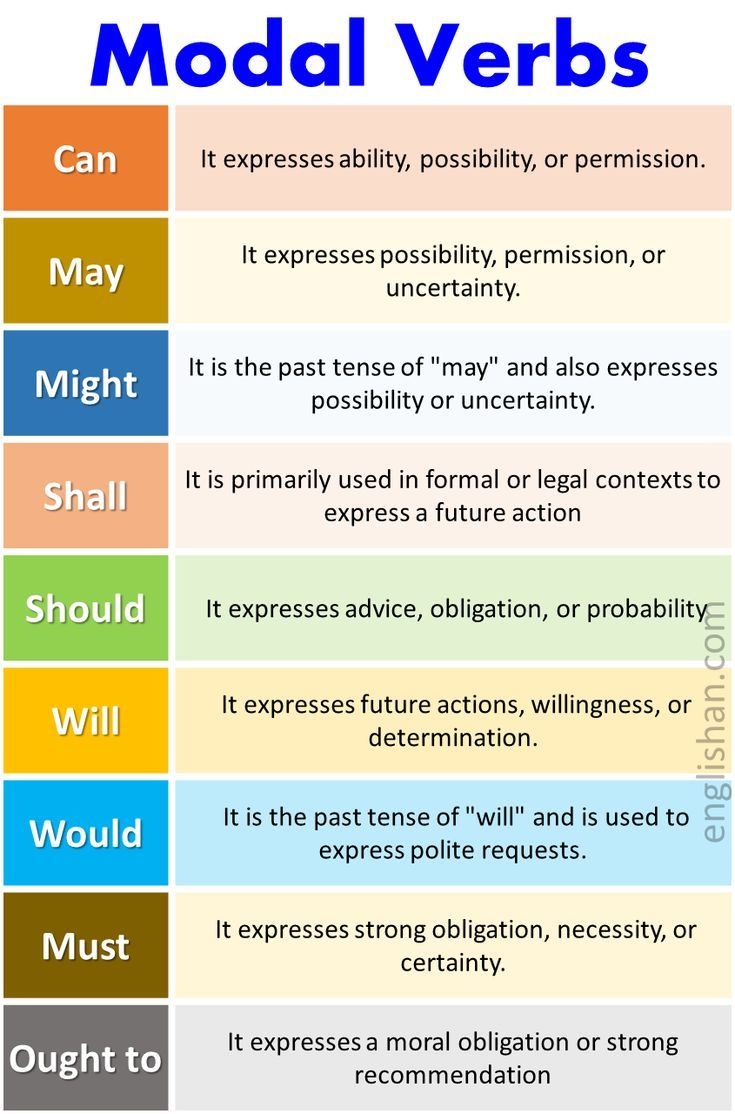Modal verbs are a type of auxiliary verbs that express necessity, possibility, ability, or permission. They are used to indicate the attitude of the speaker towards the action in the main verb. In English, modal verbs play a crucial role in conveying the meaning of a sentence and are often used in conjunction with the base form of the main verb.
Understanding how to use modal verbs correctly can help improve your English language skills and make your writing more precise and nuanced. Here are some examples of modal verbs in action:
Examples of Modal Verbs:
1. Can: I can speak Spanish fluently.
2. Could: Could you pass me the salt, please?
3. May: You may leave early if you finish your work on time.
4. Might: She might be late for the meeting.
5. Must: You must wear a helmet when riding a bike.
Modal verbs can also be combined with other modal verbs, such as ‘should’, ‘would’, ‘will’, and ‘shall’, to express different shades of meaning. For example:
1. Should: You should study for the exam if you want to pass.
2. Would: I would help you if I could.
3. Will: She will be here at 9 o’clock sharp.
4. Shall: Shall we go for a walk in the park?
Understanding the nuances of each modal verb and how they are used in context is essential for effective communication. Using modal verbs correctly can help you convey your intentions clearly and accurately in both spoken and written English.
In conclusion, modal verbs are an essential part of the English language and play a crucial role in expressing various shades of meaning. By mastering the usage of modal verbs, you can enhance your language skills and communicate more effectively. Practice using modal verbs in different contexts to improve your understanding and fluency in English.
